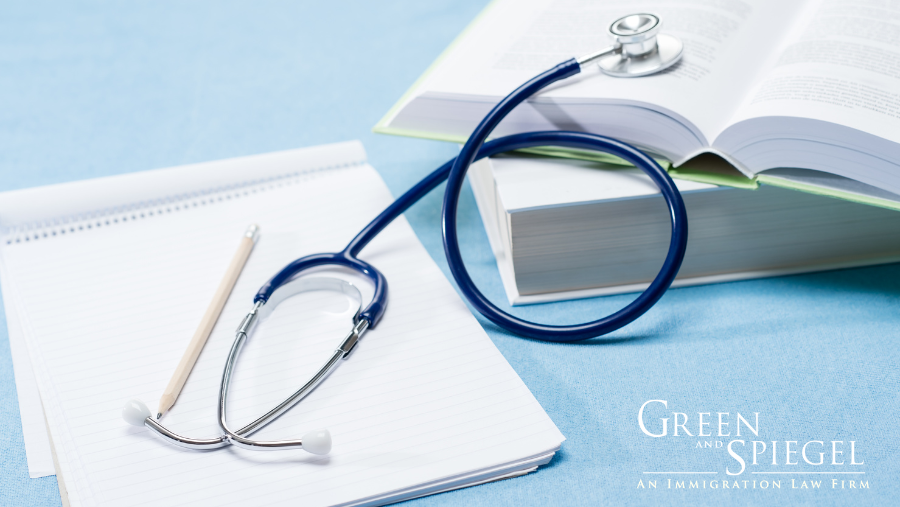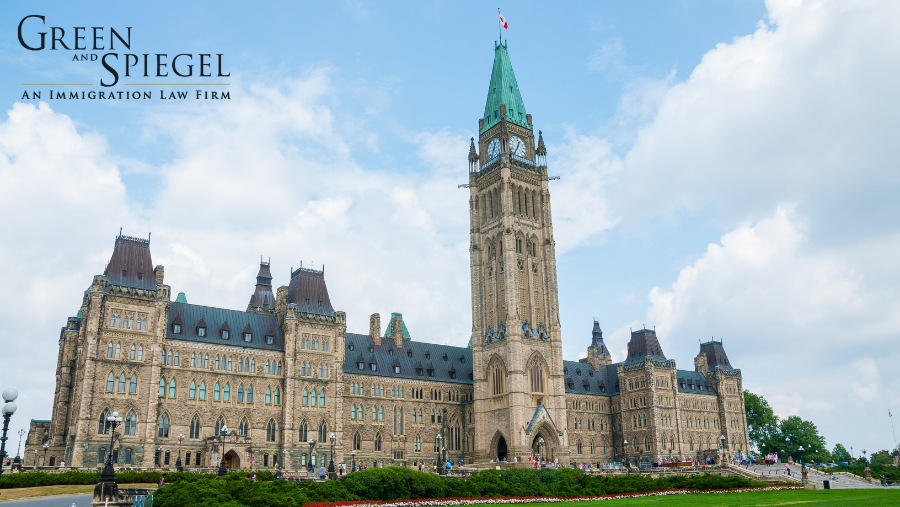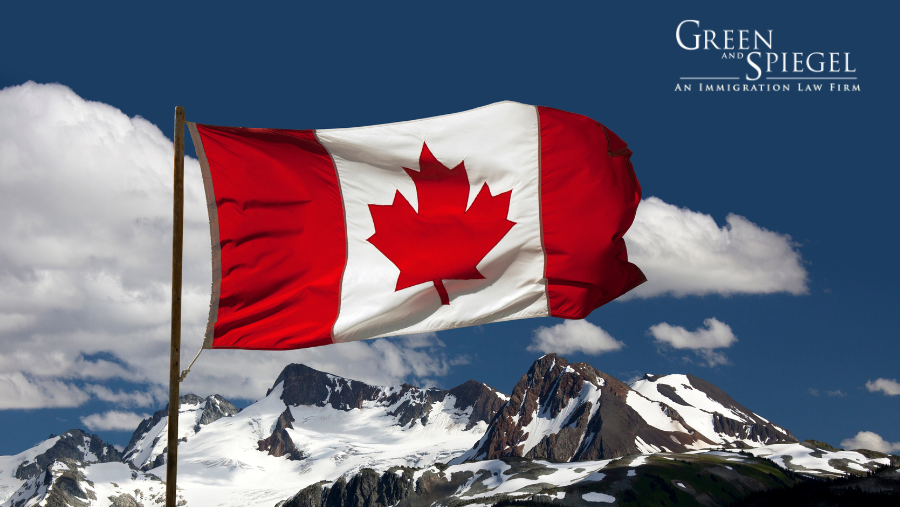
C45 and C44 Work Permits in Canada
Canada offers unique opportunities for foreign nationals, including medical residents, fellows, and post-doctoral researchers, to contribute to its academic and research sectors through specialized work permits. The Minister of Citizenship and Immigration has the authority to designate certain types of work performed by foreign nationals as eligible for a work permit when it serves broader public policy objectives.
Among these, the C45 and C44 work permits allow foreign nationals to work in specialized fields without requiring a Labour Market Impact Assessment (LMIA). These permits fall under section 205(c)(ii) of the Immigration and Refugee Protection Regulations (IRPR), which states:
205 A work permit may be issued under section 200 to a foreign national who intends to perform work that
(c) is designated by the Minister as being work that can be performed by a foreign national on the basis of the following criteria, namely,
(ii) limited access to the Canadian labour market is necessary for reasons of public policy relating to the competitiveness of Canada’s academic institutions or economy;
Immigration and Refugee Protection Regulations (SOR/2002-227) R. 205(c)(ii)
This blog will explore the C45 and C44 work permits, their function and eligibility, and how you may be able to apply for these work permits.
C45 Work Permits: Medical and Dental Residents and Fellows
If you are a foreign national, you may be eligible for a work permit under R205(c)(ii) – C45 if:
- You have been accepted into a medical or dental residency and your proposed work is not funded by a Canadian public source.
- Publicly sourced means that the income offered to the foreign workers must not be funded by Canadian tax payers’ money or public means through a national or subnational Canadian government institution, as opposed to private institutions, private universities or foreign governments. For example, foreign nationals can get a placement with the University of Ottawa (Canadian publicly funded institution) under C45 as long as their wages are not being paid by the University of Ottawa
OR
- You have been accepted into a medical research fellowship,
-
- Foreign medical fellows doing clinical work/research are typically performing very specific clinical/research work in a hospital, clinical or research setting. These positions may be publicly or privately funded.
On September 1, 2010, the Minister designated this type of work as necessary for public policy reasons, supporting the competitiveness of Canada’s academic institutions and economy. This type of work has no negative impact on the Canadian labour market as these positions are funded and created by Canadian medical faculties with financial support from the country sponsoring the training of the foreign resident. Additionally, these employment and training opportunities support medical faculties by filling essential training and research roles.
Eligibility
To be eligible under the administrative code C45, a foreign national must:
- Hold a medical degree equivalent to that of a Canadian Medical Doctorate (for example, MD, Doctor of Dental Surgery, Doctor of Dental Medicine)
- Prospective fellowships must also be recognized medical specialists who have completed residency training.
- Note: In Canada, a Medical Doctorate is provided to those who have passed their coursework in the field of medicine or surgery from an accredited medical school. In Canada, the MD is technically considered an undergraduate degree.
- Be coming to Canada to
- complete a residency at a Canadian hospital or in a clinical setting as part of their medical training (medical and dental residents)
- continue specializing in some highly specific field of study to advance clinical or medical research (medical fellowships)
- Be offered a residency position that is not publicly funded in Canada
- Medical research fellows can be publicly funded
- pass an immigration medical examination
Documentary Evidence
When applying for a work permit under the administrative code C45 (or C44 as discussed below), it is crucial to have all the necessary documents in order to ensure the process goes smoothly. Gathering the correct paperwork not only helps prevent delays but also increases the likelihood of a successful application. For this type of application, it is important to have the following documentation prepared:
- either
- an offer of employment number generated by the Employer Portal when the Canadian institution submits the offer, or
- the Offer of Employment to a Foreign National Exempt from a Labour Market Impact Assessment (LMIA) form [IMM 5802] if authorized by the Client Experience Branch or Immigration Program Guidance Branch to submit the form (see Alternate submission [IMM 5802] for details) with proof of payment of the employer compliance fee
- proof of a Medical Doctorate or medical degree and equivalency
- copy of the letter of eligibility for licensure from the relevant provincial College of Physicians and Surgeons, where applicable
- proof of completion of an immigration medical examination; proof is the printed “information sheet” from the panel physician who performed the medical exam.
C44 Work Permits: Supporting Post-Doctoral Research
Under R205(c)(ii) – C44, the Canadian government recognizes that post-doctoral researchers contribute significantly to the country’s academic and economic competitiveness. You may be eligible for a work permit under R205(c)(ii) – C44 if you are a foreign national who has or will be awarded a Doctor of Philosophy (PhD). Under C44, Post-doctoral fellows can either be:
- The direct recipients of an award; or
- be offered a time-limited position to undertake research on behalf of or as part of a team of researchers
Eligibility
To be eligible under the administrative code C44, a foreign national must
- have completed, or shortly be completing, their doctorate
- be appointed to a time-limited position in a field related to that in which they earned, or are earning, their PhD
- be receiving a stipend or salary to compensate for periods of teaching, advanced study or research
- be chosen on the basis of academic excellence
Documentary Evidence
For this type of application, it is important to have the following documentation prepared:
The following documents should be submitted with the work permit application:
- either
- an offer of employment number generated by the Employer Portal when the Canadian institution submits the offer, or
- the Offer of Employment to a Foreign National Exempt from a Labour Market Impact Assessment (LMIA) form [IMM 5802] if authorized by the Client Experience Branch or Immigration Program Guidance Branch to submit the form (see Alternate submission [IMM 5802] for details)
- proof of payment of the employer compliance fee
- copy of their PhD or proof that it will be issued shortly
Conclusion
In conclusion, the C45 and C44 work permits offer significant opportunities for foreign nationals to work in Canada while contributing to Canada’s academic and research sectors. These permits allow foreign medical residents, fellows, and post-doctoral researchers to work in specialized fields and provide valuable skills to the foreign worker while also enhancing Canada’s academic and healthcare infrastructure.
If you need any assistance with your application or have further questions, feel free to contact us.





